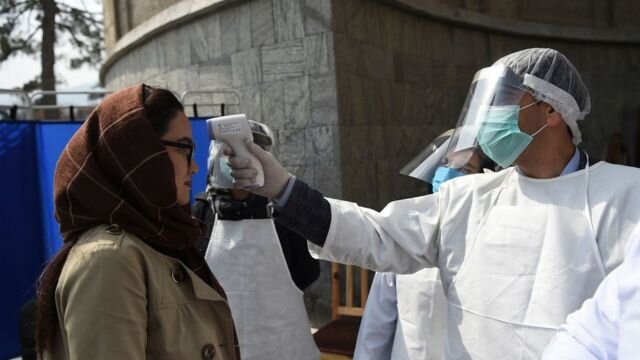All foreign nationals in Iran receive free COVID-19 treatment

TEHRAN – All foreign nationals infected with coronavirus receive medical treatment free of charge in Iran, deputy director for infectious diseases management department of the Ministry of Health has stated.
So far, at least 4 trillion rials (nearly $95 million at the official rate of 42,000 rials) have been spent only for the treatment of registered foreign nationals, Shahnam Arshi stated.
He went on to say that all health care services for refugees in Iran are free of charge and are also covered by the UNHCR.
It should also be noted that over a period of time, about 20 percent of COVID-19 patients in Mashhad hospitals were Afghan nationals who were treated free of charge, he added.
No foreign national has been charged for coronavirus testing or treatment, he said, highlighting, this is a service that is not done for free in many countries but has been done in the last 6 months for the treatment of foreign nationals in Iran.
There is no difference between documented and undocumented foreign nationals in the treatment of infectious diseases because if undocumented foreign nationals who are in Iran are not treated, they can easily spread the disease among others, so all foreign nationals residing in the country are covered by COVID-19 health services and other infectious and contagious diseases, he explained.
Iran is host to one of the largest and most protracted urban refugee situations in the world and has provided asylum to refugees for four decades.
The latest official government statistics in 2014, there are 951,142 Afghan refugees and 28,268 Iraqi refugees living in Iran. Many of the refugees living in Iran are the second and third generation, according to the United Nations High Commissioner for Refugees (UNHCR).
About 97 percent of refugees live in urban and semi-urban areas, while 3 percent are residing in 20 refugee resorts run by the UNHCR's main government counterpart.
In addition to Afghan refugees, there are about 2.5 million Afghans living in Iran, including those having a passport and undocumented Afghans. 450,000 Afghan who did not have identity cards or birth certificates have received Iranian visas that allow them to live, work or study in the country.
Iran ramped up its production of essential medical equipment, and independent entrepreneurs – refugees included – have redirected their efforts towards contributing to the national COVID-19 response.
Undocumented Afghans who have access to free primary health services and similarly free COVID-19 related testing, treatment, and hospitalization, just like nationals.
In Iran, UNHCR is seeking $16.2 million for its COVID-19 emergency, while requires an additional $98.7 million to support Iran in maintaining and sustaining its commendable inclusive refugee policies, under the umbrella of the Solutions Strategy for Afghan Refugees (SSAR).
FB/MG
Leave a Comment